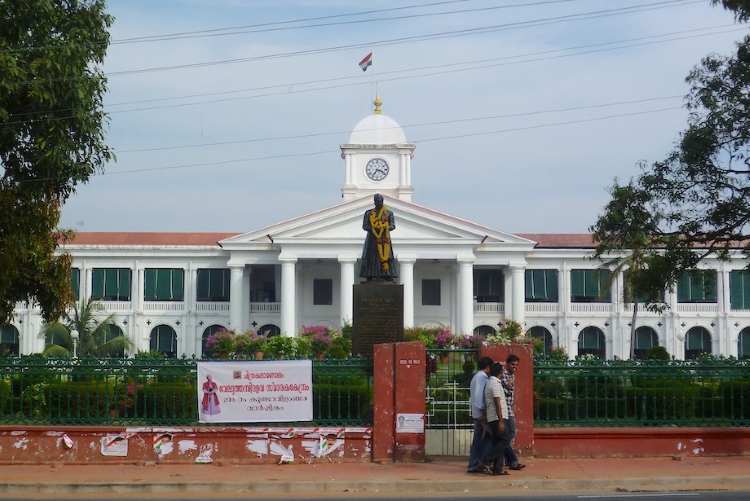Kerala fiscal management: Article 292 of the Indian Constitution empowers the Union Government to borrow funds on the security of the Consolidated Fund of India, subject to parliamentary oversight. Although the provision was designed to promote legislative control and fiscal discipline, for decades this power was exercised with little restraint. Until the turn of the millennium, borrowing limits were largely permissive, not mandatory.
The 1990s exposed the risks of such laxity. India’s economy struggled under the weight of high fiscal and revenue deficits, and an escalating debt-to-GDP ratio. The need for fiscal discipline gained traction, prompting the enactment of the Fiscal Responsibility and Budget Management (FRBM) Act in 2003. Based on recommendations of a committee chaired by Dr EAS Sarma, the law set a roadmap for restoring macroeconomic stability.
READ | India’s FTA drive may dent customs revenue growth
The original FRBM target was to reduce the fiscal deficit to 3% of GDP by 2007-08. But repeated global and domestic shocks — from the 2008 financial crisis to the COVID-19 pandemic — have seen this target pushed back multiple times. The Union Budget for 2021-22 aimed to bring the deficit below 4.5% of GDP by 2025-26.
Importantly, the Union government has required states to enact their own fiscal responsibility laws, with identical deficit limits, regardless of individual fiscal capacities. This one-size-fits-all approach has become a point of contention.
Kerala’s Fiscal Responsibility Act
Kerala responded to the Centre’s directive by passing the Kerala Fiscal Responsibility Act (KFRA) in 2003. Its goals include eliminating the revenue deficit by 2025-26 and achieving a revenue surplus of up to 2.5% of Gross State Domestic Product (GSDP). The Act also targets a fiscal deficit of no more than 3% of GSDP and seeks to bring the state’s debt burden down to 32% of GSDP.
Over the years, the KFRA has been amended several times, most recently in 2022. While these reforms indicate a commitment to fiscal prudence, they raise important concerns. Rigid ceilings on revenue expenditure can constrain essential public services and limit investments in social welfare. Likewise, restrictions on capital expenditure to meet deficit targets could undermine infrastructure development and long-term economic resilience.
A uniform fiscal deficit cap across all states ignores the vast differences in revenue capacities, demographic pressures, and vulnerability to shocks. Kerala, with its ageing population and high public health and education spending, is disproportionately affected by this inflexibility.
A case for flexibility
Recognising the need for adaptive fiscal management, the FRBM Act was amended in 2018 to incorporate an escape clause, as recommended by the committee headed by NK Singh. Under Section 4(2), deviations from fiscal targets are permitted under extraordinary circumstances — including national security threats, natural calamities, agricultural distress, and major structural reforms with fiscal implications.
The clause allows for a fiscal slippage of up to 0.5% of GDP in a given year. This built-in flexibility acknowledges that rigid fiscal targets may prove counterproductive during crises and that governments must be able to respond swiftly without breaching legislative mandates.
Wayanad and the argument for reform
The importance of fiscal flexibility was underscored in July 2024, when Wayanad district in Kerala was hit by torrential monsoon rains. Floods and landslides destroyed infrastructure, displaced hundreds of families, and battered the tourism and agrarian economies. The state’s geography—characterised by a narrow coastal belt, steep terrain, and high population density—makes it especially prone to such natural disasters.
Yet, under the current version of the KFRA, Kerala lacks an explicit legal mechanism to deviate from fiscal targets during such emergencies. This leaves the state constrained in mounting an adequate and timely response without violating its fiscal obligations.
A prudent course would be to incorporate a state-level escape clause within the KFRA, aligned with the FRBM model. This would allow temporary fiscal slippages to accommodate unforeseen disasters, without undermining Kerala’s long-term fiscal responsibility.
Several states—including Karnataka, Tamil Nadu, Arunachal Pradesh, and Punjab—have already amended their fiscal responsibility laws to include such provisions. These adaptations allow them to respond effectively to crises while retaining a commitment to fiscal prudence.
Revisiting the fiscal architecture
Amending the Kerala Fiscal Responsibility Act to include an escape clause does not require a fresh statute. As with the FRBM Act, which has been amended multiple times—through Finance Acts in 2004, 2012, 2015, and 2018—Kerala too can introduce the necessary changes through its Finance Act.
More broadly, there is a case for rethinking the rigid uniformity of fiscal targets across states. Fiscal responsibility should not come at the cost of social development or the capacity to respond to emergencies. A more nuanced framework—one that accounts for differences in state economies, revenue structures, and development priorities—would be both fairer and more effective.
Kerala, with its high social sector commitments and frequent exposure to climate-induced disasters, stands as a clear example of the limits of a standardised model. Reforms that recognise diversity in state-level needs will not dilute fiscal discipline—they will strengthen it by making it more sustainable and responsive.
The goal of fiscal responsibility must be pursued with a measure of flexibility. Building mechanisms that allow for limited, rule-based deviations during crises can make the fiscal framework more resilient. Kerala’s experience—mirrored by other vulnerable states—points to the need for context-sensitive policies that safeguard public welfare without compromising long-term fiscal health. A well-designed escape clause in the state’s fiscal responsibility law would be a step in the right direction.
Dr Vidya V Devan is Assistant Professor, Gulati Institute of Finance and Taxation, Thiruvananthapuram.

